- From Faith Current: “The Sacred Ordinary: St. Peter’s Church Hall” - May 1, 2023
- A brief (?) hiatus - April 22, 2023
- Something Happened - March 6, 2023

When approving the last ever comments on the gargantuan “Were John and Paul Lovers?” thread, I found myself asking a simple question, which some of you might have an interest in as well.
There are certain niche interests where, if not for fan-generated content, there wouldn’t be anything new to talk about. I suspect that if you’re interested in the Titanic, for example, or Jack the Ripper, or Sherlock Holmes, fan-generated content is necessary to sustain your passion.
But the Beatles is different; it’s bigger even than the Marvel Comics Universe. Beatle fans don’t need fanfic. We don’t need blogs like this one, even. Not only do we have a vast trove of music, released and unreleased, group and solo, to discuss, we’ve also got an even bigger mountain of interviews, books, movies, TV appearances, reviews and criticism to sort through. Add in all the people the Beatles touched, the cultural changes they wrought, and the history that happened all around them, and you have a topic that the study and enjoyment of which could fill many lifetimes.
And yet.
Apparently, according to some of you, there are fan-written stories showing violence to John Lennon or Paul McCartney. There are fake photos designed to heighten some Beatle-related obsession. Does this surprise me? No. Anything as powerful as The Beatles is going to call forth something in most people; and what it calls forth is necessarily a reflect of that person. If a person is “off-balance” somehow, that will inevitably be reflected in how they interact with what they love. I am sure that there were fans at the Cavern Club who danced, then went home and scribbled furiously into notebooks about the group. Most wrote normal things; some wrote erotic things; a few wrote about how John, Paul, George and Ringo were aliens living in a postbox on Renshaw Street, trying to poison us all with gamma rays.
[That would’ve been me. :-)]
The problem is, on the internet, the loonies are the loudest. Plus, they congregate. The rest of us must have the good sense not to listen.
I understand the desire to write a your own custom narrative; I wrote a whole novel based on The Beatles. But I did that within an old media sense of responsibility to my readers, and the source material. Would Life After Death For Beginners been a more interesting book if it had depicted J/P sex? Perhaps. More salable, for sure. Or if I’d woven “Paul is Dead” into its plot? Or if I’d commissioned photoshops of every plot-point, and put it in a middle photo section, thus “proving” my counter-narrative to be the truth, and sending fans hunting for a bullet-scarred John Lennon eating Charly Tremmel ice cream on the Venice boardwalk?
Better, maybe. More popular, surely. But, to my mind, hugely irresponsible. The Beatles and their story isn’t a fantasy world created by an author; it is history, things which happened to real people, and those people’s realness, to me, confers upon them certain rights. I wrote my book under pretty tight restrictions; I felt there were lots of things my characters wouldn’t do—and I didn’t go there. Regardless of the benefit to my narrative, to say nothing of my enjoyment or pocketbook, I had a responsibility to the real people. Because—it’s this simple—I like them. I’m grateful to them.
Why, with all the vast amount of excellent Beatle content available to us, would anyone spend a moment’s time consuming garbage? And how, as they consumed it, could they not feel the subtle psychic damage that material would do? When you look into an abyss—any abyss—it looks back into you. The Beatles are, apparently, no exception.
But hasn’t there always been Beatle-garbage?” you ask. “Didn’t Fleet Street and the publishing houses produce pounds of piffle? Didn’t the media whitewash the whole story in exchange for a buck? Weren’t lots of voices and perspectives not heard?” All true. But even something as craven and brutal as Fleet Street had certain ground rules. They could be sued; there was an owner at risk; and there were names on the articles. And gatekeeping, for all its flaws, has a singular benefit: not every voice or perspective deserves our attention. Now, each of us must be our own editors, and sad to say, most of us simply aren’t up to the task.
For example, of late I’ve mentioned a book that was published in 1968 by the Olympia Press. It was called A Handbook for Homosexuals, and it was written by someone using the penname of “Angelo D’Arcangelo” (no, not “L’Angelo Misterioso”). This book named Paul McCartney as “a practical homosexual,” whatever that might be, along with J. Edgar Hoover and William F. Buckley. This book and its anonymous assertions have not gotten very far in Beatle culture, and it shouldn’t—not because there’s anything wrong with with Paul might have done/does/will do with his clothes off, but
- It’s not really any of our business,
- You can interpret, enjoy, and benefit from Paul’s work without it, and
- If Paul wanted us to know about that, he’d tell us. George said, “Take the music. It’s the best of us, and what we offer most willingly.” That’s good advice.
For lots of reasons, much of internet culture is undeniably “toxic.” By which I mean violent, bullying, monomaniacal, or just unutterably stupid. I’m finding to my dismay that this is having an impact on Beatle fan discourse, even on this site. Nancy and I have to read every comment to approve it, and while the intellectual content of some of the comments is good and reflects some reading, the intent behind most of them is, well, bickering. This actively retards any kind of fact-finding or analysis.
Those of you who have substantive things to say — a thesis to examine, with evidence — I would encourage instead to pitch me. I’ll run it as a post. This formality will make you engage with the topic more deeply, and determine whether there’s anything really there.
Those of you who are using our comments sections as a kind of therapy—well, I’m a big believer in therapy, so I’m loathe to turn off comments. But I would ask you to police yourselves.
- Have I said this before?
- Am I saying it succinctly, and in good English?
- Is my attitude one of sharing an interesting thought, or firing back at someone I think is wrong?
- If I think they’re wrong, is there data behind it? Or is it just a matter of opinion?
This site is meant as a clearinghouse for all types of Beatle discussion, but in a world where “Paul is Dead” is earnestly debated by a bunch of idiots, and people (apparently) have an deep personal connection to the question of whether two famous strangers might have, y’know, “done it” 50 years ago, I think it’s time we start being a little more discriminating. That ends with Nancy and I, but it starts with you guys. Thanks.



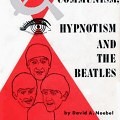


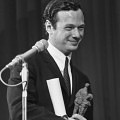


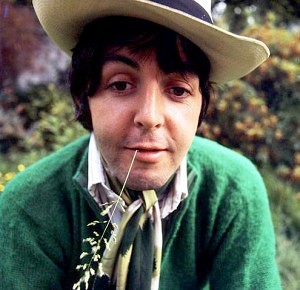
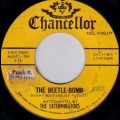

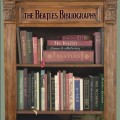
I’m really glad I get a chance to comment on the last post I made on the Were John and Paul Lovers? blog. When I said everything about John and Paul was blurry,I was referring to the fact that since there IS so much information on them in general,it was difficult for me to recall where I had read the comments about”Look,the married couple are sititng together” I AM pretty sure I have seen that mentioned in other blogs,but,no matter. I personally don’t care if things ever became physical between them,I never did. I was always more interested in the emotional part of it and if it had anything to do with why the Beatles broke up. That’s what got me involved in all of this in the first place.
@Gretchen, the question of too much information making a topic blurry is an interesting one. There seems to be a sweet spot between knowing too little about a topic and knowing too much, when it comes to creating a workable mental map.
.
In the case of The Beatles, you have to know when to stop reading. And who to read in the first place. It’s akin to “aiming for the fat part of the target.”
.
It’s like — to use a morbid example — John Lennon’s murder. Almost immediately, there was a whole conspiracy theory, eventually codified into a book by Fenton Bressler. An event that seemed the definition of “open and shut” now had room for doubt. And a lot of information that had to be accounted for. (Not enough to make it even remotely plausible, but still.)
.
The more information that’s present, the more important judgment becomes…and reducing the cognitive load to people who are experts. Tech company dreams aside, most people are not capable of sorting wheat from chaff, and simply pick the information-set that gives them a dopamine hit. And they reject “experts” because that information doesn’t give them their fix, in favor of unqualified people who do. We’re seeing the political consequences of that, and might well see biological ones too.
The scholar in me was a little bit intrigued by the mention of “The homosexual handbook” written by the mysterious “Angelo D’Arcangelo”. I had a quick “web-look” into it and found that the author hidden behind the alias was Josef Bush, a New York City-based actor, screenwriter and gay activist according to Google.
I have not read the book. The English version is not available as an e-Book, but it is available through Google in German, where free excerpts can be viewed. Regarding the “outing” of Paul McCartney, he is listed in a chapter of the book called “Uncle Fudge’s grape-vine lineup” which is a compiled listing of historical and living practicing homosexuals based on rumors (this information is translated loosely from the German subtitle).
The author supplies some background for his claims for the various people listed, and quite a few of the names on the list probably accurately belong there or at least are not unlikely. However, the following is stated regarding Paul McCartney: “Paul McCartney von den Beatles: Aber das wird nur Wunschdenken meinerseits sein.” Translated into English: “Paul McCartney of the Beatles: But that is only wishful thinking on my part.”
From this we can deduct that Josef Bush wishes that Paul McCartney is gay, but he does not supply anything to substantiate this. This probably answers the question of whether some gay men fancied young Paul back in 1968, but unless the original English version of the book had a different wording than this 2012-edition in German, and was changed due to legal actions by Paul McCartney, then it probably does not contribute anything of substance regarding Paul McCartneys actual sexual preferences.
However, it illustrates quite nicely why the consequences of spreading rumors, personal opinions and in this case just a desire as facts are much more toxic and destructive today than back in the 60’s. In our world of social media, such claims can be spread very quickly and within a short period of time the distance between the original source and the receiver is so big that fact checking becomes a challenge, even for the more diligent reader. As you mentioned, this book with its probably limited target audience did not create any waves back then.
By the way, I wholeheartedly support your decision to close the J/P-as-lovers thread. Not wanting to trigger another unfruitful discussion and consequent derailing of your thoughtful post, is a big part of why I ask for this reply not to be posted on the site.
However, I would like to use the opportunity to thank you for the many interesting topics discussed on your site, which I have enjoyed reading for a long time! Keep them coming, and don’t let the grumblers bring you down!
Excellent point.
But that’s … fandom in general, I think? Like you say, much of internet culture is undeniably toxic, but I would suck some of the cynicism out of that and say, in good faith, much of internet culture CAN be toxic, but much of it can be super-awesome, too.
I know people who consider the Hoffman forums to be a toxic environment. Youtube Beatle commenting culture is … well, it’s Youtube. Then there are hugely informative sites like amoralto on tumblr or beatlesebooks or beatlesbible, or blogs like this one that have some interesting discussions with lots of thought behind them (even if I don’t always agree with everyone).
One person’s garbage is another person’s creme brulee. Er, that analogy could be improved. Anyway, everybody’s into something and they get their fun (as you say, their dopamine) from their personal niche or strata of fandom. And like in any fandom there are the intellectuals at the top feeling good about their philosphical discourse and information-finding, looking down on all the poor idiots enjoying their badly written fanfiction, and then at the very bottom are, of course, the furries.
And for the most part, even denizens of the silliest niches don’t really hurt anyone and they don’t hurt the fandom as a whole. They’re just people having fun with the thing they enjoy, in this case, the Beatles. PiDers mostly have their confirmatory spaces and peek out to annoy others on Youtube. The “John was a GENIUS who HATED Paul’s Granny music LOL!” people have their spaces. A lot of them. J+P people can obviously cling to their happy thoughts a little too much for others, especially if they’ve spent a lot of time in “mclennon confirmed!!!1! spaces on tumblr. (Even I, who am very sympathetic to the J/P viewpoint, found the John+Paul thread arguing really tiresome. I think you made the right decision to close it to comments but there’s so much good past discussion on there that can still be read.)
I can see how turning real people into a fandom culture and then into a fan fiction or photomanipulation can make some fans uncomfortable. Real-person shipping is one of those gray, divisive areas in general fandom, known to be a little daring and considered by others to be downright immoral. Though I don’t think its existence actually hurts the Beatles or Beatles fandom, either. I think in the past, MG, you’ve stated that Paul McCartney cannot be hurt by comments or beliefs on here because of his fame/money/disconnect from regular people; if you want me to dig up a specific example I can, but I say this in good faith of my memory of the context, to promote the idea that fan fiction can’t really hurt him at all either; it’s written by his die-hard fans, anyway. As for fictions about violent things happening to John or Paul or whatever, it’s very rarely just torture porn– in fact, I have yet to see that. It’s mostly about a hurt/comfort trope, making one’s favorite “character” suffer so that they can recover and get lots of comfort and attention from everyone else. It’s a narrative trope applied to Paul McCartney as a character, not a desire to see actual harm come to Paul McCartney. You could switch out his name for Captain America or something and it wouldn’t really matter. Is it my thing? Nope. So I just … don’t read it and don’t feel the need to pass moral judgment on those who do.
I know you’ve made the point more than once about information culture and its effect on the current climate. I guess I’m still holding out the non-cynical hope that MOST people can tell the difference between their fan/fantasy life and Real Life that affects our communities? That clinging to John/Paul might make someone a little over-romantic or idealistic, but If they can’t really tell the difference between what’s important to them in Beatles world and what’s affecting their everyday lives, then there’s nothing we can really do about that except provide more quality education of the population, is there? That’s why we have the electoral college here in the US, because the government was/is convinced we’re all idiots.
Also, every time you mention that handbook for homosexuals, I’m a little surprised that it was PAUL who ended up in there instead of John, who was apparently not all that discriminate or even cautious (considering the time he lived in) in his sexual dealings. I suppose it just goes back to John’s macho/powerful/alpha image, which has somehow endured despite every chance he took to sabotage himself, and the fact that Paul was so incredibly attractive and women love him.
@Kristy, there’s so much in this comment, I want to do the old Dullblog thing of going through it.
.
But that’s … fandom in general, I think?
This is my point. It wasn’t fandom, before the internet. Online culture intensifies certain aspects of fandom, then through permanency and network effects, makes them dominate it. For my aunt, being a Beatles fan meant listening to the music, buying magazines and merch, seeing concerts (yes she did). It did not mean sitting in front of a computer debating what it meant that John touched Paul’s arm in such-and-such a video, or looking at ear-height photos (much less making them) that purported to show that Paul McCartney had been replaced by William Campbell. That is a hallmark of THIS era of fandom. Interestingly, Mary did get that magazine back in 1969, because she thought it was funny. And we laughed about it again in 1981, when I was 12 and going through her “Beatle boxes.” Beatle fandom nurtured by IRL experiences, and fandom nurtured by internet experiences, are proving to create different kinds of fans interested in different kinds of things.
.
One person’s garbage is another person’s creme brulee.
I don’t buy this equivalency. What a person chooses to fill their head with is a reflection of who they are, or what they wish to be. Perhaps it reflects a trauma; certainly it reflects their level of personal development. And it has consequences — what a person consumes creates their mental environment. One’s mental environment is probably the key determiner of whether they bring either good stuff or bad stuff into the world. Does this mean people should be restricted or policed? Of course not. But neither should we deny the likely positive impacts of one interest, and the likely negative impacts of another. A 14-year-old boy who is obsessed with “Yellow Submarine” is not the same as a 14-year-old boy obsessed with PID.
.
And for the most part, even denizens of the silliest niches don’t really hurt anyone and they don’t hurt the fandom as a whole.
Well, I hope not, but as internet culture has taken hold, I’ve found the commenting on this site to have deteriorated. I’ve found it becoming louder, less backed by facts/quotes/data, more personal, more snarky and abusive, less tolerant, etc. And as I’ve had to read all that, I too have gotten less tolerant and more prone to fly off the handle.
.
If you’ve been on the internet and read comments sections, they all basically sound the same after a while. HD’s culture can’t be determined solely by the posts, the comments are a big part of it. And as the culture has changed, the site is becoming less effective as a means by which people can learn from and enjoy each other. I don’t think it’s restricted to HD — how could it be? — and so it must surely be “hurting the fandom as a whole.” To put it another way: if you go to Beatlefest now, there’s a definite vibe, and it’s basically set by 1st and 2nd generation fans. It’s nostalgia, peace and love, the anthology. In 15 years, if there still is a Beatlefest, the vibe will be different — the people going, and presenting, will be people with PID or J/P channels on YouTube, because those are big audiences that you can reach easily via digital marketing.
.
photomanipulation can make some fans uncomfortable
Faking the past is not fandom; it is intellectual terrorism. Seamless, untrackable photomanipulation and soon deep-fakery allows one motivated person to create propaganda-like “evidence” for anything he/she likes. The single best way to kill Beatle fandom would be to introduce a stream of evidence that “proves” the Beatles were child-molesters. And the production of that information would be much easier and faster to create and distribute than it would be to debunk. Once it was released on the internet, there would be thousands and thousands of people who “found out that the Beatles were molesters, I saw the photo.” Just like, in the J/P thread, commenters asserted “proof” of all sorts of things that it turned out they’d just read somewhere, they couldn’t remember where. But they BELIEVED it.
.
It’s mostly about a hurt/comfort trope
This is fascinating.
.
You could switch out his name for Captain America or something and it wouldn’t really matter.
But it DOES matter, and this is exactly what I’m talking about. Paul McCartney isn’t Captain America; he isn’t a character, he isn’t a concept, he’s a person. To treat him like a character is to DIMINISH him. The internet has made us think of everything as one equivalent thing: content for the internet. But Paul is a person, who’s lived a life and created things, made moral choices, lived with love and loss — and Captain America is a character owned by a corporation. Paul is a person; CA is a thing. Paul can live, love, and die; CA cannot. If there’s no difference between those two things, our culture is deeply fucked up.
.
MOST people can tell the difference between their fan/fantasy life and Real Life that affects our communities?
Until you show them a photo or a deepfaked video that confirms their desires on a topic. “I KNEW George was weird! And Ringo, all those kids’ songs — totally obvious, once you hear the interview with Jimmy Saville!”
.
Also, every time you mention that handbook for homosexuals, I’m a little surprised that it was PAUL who ended up in there instead of John, who was apparently not all that discriminate or even cautious (considering the time he lived in) in his sexual dealings. I suppose it just goes back to John’s macho/powerful/alpha image, which has somehow endured despite every chance he took to sabotage himself, and the fact that Paul was so incredibly attractive and women love him.
More to come on this from another commenter in the next bit, but remember that John and Paul’s media personas embody classic butch/femme dichotomy. The reality is different, of course. But if you like the butch side, John’s persona would attract; the femme, Paul’s persona. This works for all sexual orientations I suspect.
.
Thanks for a GREAT comment!
Considering the fact that he was lumped together with the likes of J. Edgar Hoover and William F. Buckley, I’m not so sure attractiveness had anything to do with it.
The Beatles certainly got a certain demographic riled up. The far right, the racists, the paranoid. Back then they could publish in little newspapers. Nowadays, with the internet, their thoughts fly around the world almost instantly.
https://oldshowbiz.tumblr.com/post/615184732562636800/the-beatles-are-a-communist-plot
.
This reminded me of something. Recently I’ve been watching a PBS history documentary. The usual montage of old family photos from the late 19th and early 20th centuries. And the children in the family portraits; the little boys wear what would have been considered in 1964 a “Beatle haircut.”
Much has been made of Beatlemania-era JPG&R’s androgynous appearance being irresistible to female fans (the implication being that perhaps there was a triggering of latent lesbian desires?) but I wonder if they also triggered maternal instincts. The Beatles’ appeal not being so much that they “looked like girls” but that they looked like little boys.
At the dawn of Beatlemania, grown men wore pompadours. With lots of Brylcreem. Only little boys wore bowl haircuts (well, Moe Howard and Ish Kabibble being the exceptions). So the sight of JPG&R presenting as little prepubescent boys must have aroused such a confusing mix of feelings and instincts in the screaming fans.
Would male fans have reacted so dramatically if Leslie Gore or Jackie DeShannon had affected the style of little girls? I don’t know. And it’s too late for Carl Jung to publish a monograph on the subject.
I believe any entertainer who comes on the scene and provokes feelings in fans that the fans can’t fully explain or handle or process… then an insanely dramatic reaction is inevitable. Whether it takes the form of sexualized fan fiction, or obsessive collecting, or death rumors, or paranoid theories or even attempted (or successful) murder… there’s going to be something.
It’s not surprising they stopped touring when they did. It must have been terrifying, especially after America, let alone Manila.
Yeah, I’ve always felt that J/P/G/R were evoking archetypes, psychological tropes buried deep in the collective unconsciousness. And the perception of androgyny is a really powerful part of that. They were not in control of this, and sooner or later it would have to encompass dark reactions as well as lighter ones — Devin’s book Magic Circles is particularly good on stuff like this.
This whole topic makes me sad. Sad that people are susceptible to conspiracy theories. Sad that the wonderful music the Beatles made, and which is still moving people 50 years on, is reduced to a side note.
Sad that people can’t just accept FACTS.
Thanks for your thoughts, Michael. Dark as they are! I can say that yes, Beatles fests/conventions in the future will probably look a lot different — in fact, I was surprised that they already didn’t include a J/P subculture or discussion in any way. I do think PiD stuff will continue to be marginalized somewhat, if only because it’s inherently malevolent. Other discussions don’t come from that place of bad intent but if they provoke annoyance and disgust, then that’s for the receiver of the information to decide.
.
I do think the garbage vs. creme brulee comparison stands, if we’re clear on what’s being discussed, its level of malevolence, and what’s considered someone’s personal catnip versus what’s their Kryptonite. Sure, any deeply held obsession is probably not healthy. I’m talking about hobbies. Even some of the more obsessed people in your J/P threads probably aren’t living J/P as a lifestyle. They have jobs and parents and kids and dogs and houses. They were using this as a fandom space to discuss it, sometimes past the point of logic, but as a hobby discussion about a hobby they like a lot and have maybe “thought too much about.” It’s the moderators’ perogative to shut it down if it’s not helpful.
.
Yes, discussion and writing fanfiction about real people is different from doing it with fictional characters, and It can be creepy and I can’t imagine that celebrities aren’t aware of it. Like it or not, creepy or not, the Beatles seem to be kind of a historical fandom to some younger fans. It’s not among the top ten of weird things I’ve seen in my decades of fandom culture spaces, live or online, so I’ll metaphorically shrug here and continue to not judge as long as nobody is harassing a live Beatle, picking up a real live person and forcing them to act out their fantasy, or making any kind of money off it, which fanfiction and most fan discussion doesn’t do. (Though there is published Beatles fanfiction that we can purchase.)
.
And when I talk about photomanipulations, I mean not as a deliberate attempt to fool anyone, but as a sort of creative outlet that I personally find creepy but some people like. That’s been around since before the internet in fandom spaces. If it makes anyone feel better, some of the pictures in your faked-pictures post referenced above have made it to tumblr now and then, and within seconds of appearing there are plenty of people commenting “those are fake/manips” or “that’s not John” or “why fake it? the actual pictures are good enough.” So even the 16-year-olds can spot a fake. I guess we’re lucky that so many Beatle photos are iconic. For a good laugh, look up the story behind “his hed is pastede on yay.”
.
I doubt that anyone looking to hurt the Beatles with false accusations of child molestations or misdeeds are coming from a place of being fans? Er, Albert Goldman?
.
And briefly to Tasmin: “Sad that the wonderful music the Beatles made, and which is still moving people 50 years on, is reduced to a side note.”
.
Well, if people were only going to discuss the music, then a very good chunk of Beatles books, websites, and podcasts would be made redundant. Luckily, yes, the music is still powerful and foremost and I know toddlers who can recognize a Beatles tune, so yay.
Interesting comments regarding the androgenous aspect of the Beatles but, with due respect, a little overstated I feel. From what I’ve read and heard of fan experiences the Beatles were definitely seen as grown men, not little boys. Three guesses as to who wrote those early essays on the confusion and vulnerability of young girl fans: middle-aged male psychologists uncomfortable with the idea that their 12/13 year old daughters had sexual feelings. The lads themselves said they received fan mail bordering on the pornographic, even from very young “innocent” girls. Girls and women are much more astute than they’re given credit for, which is why many laughed off the Stones’ bad boy image because it was seen to be exactly that – an image. The “manliness” of short hair was an early twentieth century construct. Had not the first world war eventuated, where men were told to shave their heads to stave off nits and lice in the trenches, short hair, not long hair, would have likely become the fad.
@lara, I believe Devin McKinney wrote some about this in Magic Circles, but it’s striking how infantilized the Beatles were in the American press, especially during that US tour. “Teddy bear”-ized.
.
Which is why (in my opinion) the mustaches were so controversial. “The boys are growing up!”
Yes, right. And the use of “boys” in general. Epstein’s use of “boys” and “my boys” is a total giveaway.
I realize that this is probably not the place for this comment,but I had to post this somewhere so I can gauge the reaction. There was an interview a couple of days ago where Paul talked to Howard Stern about quite a few things and one of the things they talked about was the whole fiasco of John writing HDYS. To be clear,I am mostly pissed at Howard Stern for dragging up unpleasantness from almost 50 years ago but I am also annoyed at Paul for not mentioning his part in it by writing Too Many People. It sounded like John had written HDYS with no provocation. My question is why are people so quick to stand up for Paul and give Johnny the shaft and why didn’t Paul just refuse to say anything about all.of it when that jerk Howard Stern brought up the whole ugly business? Every time I try to give Paul the benefit of the doubt as to his relationship with Johnny,he does something like this. I will ALWAYS stick up for John, no matter what and I just don’t understand why so many other people don’t. Their relationship was very troubled,I know and I readily admit that John went way overboard sometimes but why can’t Paul just let it go? He should have just told Howard thst he didn’t want to talk about it or at least admitted his culpability.
Gretchen, for what it’s worth I think that some people consistently “stick up for” either Lennon or McCartney. It probably depends on the specific discussion and venue as to how many people are defending a particular point of view.
.
My own view is that all four of the Beatles were damaged by fame, in addition to enjoying it. The specific form that damage took, and how it manifested, depended on what they’d experienced pre-Beatles. The older I get, the more I see all of them as having some positively adaptive, and some maladaptive, ways of coping with that damage. I feel more compassion for all of them as I’ve lived longer (much longer now than Lennon got to, for instance) and seen more examples of how people close to me have dealt, and are dealing, with what’s hard in their lives.
.
And I think it’s hard to get our heads around the level of fame the Beatles had, and at a time when that level of fame was relatively unprecedented. The book that’s made me think most about this (though it doesn’t deal with the Beatles specifically) is Cintra Wilson’s A Massive Swelling: Celebrity Re-Examined As A Grotesque Crippling Disease. It was written in 2000 and has grown even more relevant as internet culture has taken hold.
.
She writes that “Big Fame will fuck you, fuck you, fuck you in the head until there’s nothing between your ears but a sour, translucent jelly.” Brutal, but an entirely possible outcome for too many people (she wrote that line specifically about the childhood of sexualized performance that Michael Jackson endured, and the trauma that ensued for him).
.
I take that as a reminder that we so often see the shiny upside of fame, and not the harm that it can do to its possessors. Given the amount of emotional intensity the Beatles received from their fans — and the way so many people have projected themselves onto the band, or to individuals in the band — I’m grateful that they all survived and formed healthy adult relationships, to a large extent.
“why didn’t Paul just refuse to say anything about all.of it when that jerk Howard Stern brought up the whole ugly business.”
Because Paul was affected by it and has every right in the universe to discuss a relationship he had and a song that was about him and doesn’t need to explain the backstory behind every thing he’s ever said just to make sure everyone is covered equally in blame and/or approbation? He did take the punches and he’s still spent most of the last 50 years talking about how great John was.
Howard Stern also asked a bunch of other really asinine questions, but Paul seems to have some fondness for Howard and will give him a polite answer if nothing else.
I was advised awhile back just to puruse this blog and comment along if wanted to. I have done this, but continue to see a running series of comments along the lines….Paul not sticking up for John, why can’t he just let it go, etc. I will always stick up for “my John.” The man was a public figure but belongs to know one. Every fan loved him and his flaws were on full display throughout this time as were the flaws of the others.. He said decades ago, John was his friend and he loved him. He wasn’t perfect, but was his friend. Paul let this go decades ago, but it is fans who haven’t. They had a public feud that ended tragically, yet Paul must constantly answer interviews and be judged by Beatles fans. When he emphasizes the good, he’s accused of rosy colored glasses views, but that is the wisdom of a 77 year old man.
I’m not sure the ages of some of these folks, but I get the impression they are younger than I am , but I remember this in real time, and as I got older I understood the dynamics of a public family feud and how one big interview, rolling stone 70, and subsequent press bashing’s from John and George triggered it. The press then really agitated it….the song wars began after the interviews, and one song led to another. John himself got such negative press reactions to how do you sleep, that he met privately with Paul and Linda to get him to drop the song wars. If John himself could do that then, I don’t know why his fans are still arguing over it.It’s amazing and sad that Beatle solo wars set the model for future fans. Since venturing into other blogs and forums, I see where the versus, and possible trolling of singers are not allowed, though some slips through the hosts of those. I too am more sympathetic to all of them yet have learned of some pettiness I wish I didn’t know.
I hope when I return to this blog, that the John Paul wars have ceased in fan comments. Those who remember that time know there were wrongs on all sides but well remember when and how it started and all of the subsequent interviews.
Gretchen – I also found it really annoying that Howard brought that up and compared John to freakin’ Trump and how dare he do something like that. It wouldn’t have been so bad except for the fact that in his previous interview with Paul, he said that Too Many People was his favorite song, precisely because it was an attack on John (Howard’s own words). It was honest, he said. You can find the clip on Youtube – it’s called “Paul McCartney on Who Broke Up the Beatles”. Does Howard not know that John’s song came *after* Too Many People?
.
Yes! That’s what I find most depressing. They had their quarrels, their feuds, but they loved each other, and eventually put it behind them. But then the fans want to keep the fight going. Why? I find it enervating.
Howard Stern did it in the recent Paul interview. Poking at Paul with questions about How Do You Sleep and the breakup. If I had the chance to talk to one of the world’s greatest songwriters, I wouldn’t be asking “How did you feel when John wrote that song about you?? It pissed you off, right???” There are so many better questions.
Imagine the questions Mr. Gerber or Mr. McKinney would have asked if granted the same opportunity! We’d actually learn something new. Instead, in Stern’s interview and in these comments we get the same “Who was mad at who?” obsessions over and over.
Eventually, all considerations of the music, the passion, the groundbreaking, the beauty, the creativity fall away. And we’re left here with endless discussions of the squabbles. It’s like visiting the Sistine Chapel and asking for a tour of the bathrooms.
Well said, Sam. It’s the clickbait phenomenon, basically. Whatever is scandalous or painful — that becomes the focus, instead of what is potentially enlightening or unexpected. If I got to ask Paul McCartney a few questions, I guarantee none of them would be “So, how did you feel about ‘How Did You Sleep?'”
I’m with you, @Sam. I’d love to hear what Devin would ask Paul. And I find John vs. Paul enervating as well; it’s so clearly fueled by fan identification with their fantasy of one or the other person, rather than anything real. That’s OK when you’re 12, but if you’re much older than that, both John and Paul would tell you, “Time for you to discover yourself. Do *your* thing.”
Sadly, Paul performed “Too Many People” in live performances in 2005. I doubt John would have performed HDYS live, ever. And he would rip Howard a new one if he said something obnoxious about Paul if he were still alive and on the show. I would have loved to see John on the Howard Stern show.
But, Gretchen? Please don’t call Howard a jerk. That is what you would call a guy who kills your best friend in cold blood when he comes home from work at night.
@Michelle, please.
.
We have no idea whether John would’ve performed HDYS; that’s the “John” in your head. Actual John Lennon was vastly changeable, and praised Paul one day and slagged him the next. That’s what the interviews show. As a John guy I’d like to think that he’d have gotten more even and charitable as the years passed, but that’s my fantasy of him. The John we can prove was unpredictable, especially in his loves and hates, especially vis a vis McCartney.
.
The “jerk” comment is snark for the sake of snark, and I’d ask that you please quit it, or take it someplace else. I’m actively trying to wrestle our comments section back into a generally respectful, non-snarky, non-personalizing place. Anybody who can’t do that is welcome to lurk, but shouldn’t comment, because it 1) heats up the discourse in unhelpful ways and 2) discourages commenters who don’t like to fight.
.
Just do your best in this regard. Thank you.
Nancy Carr interviewing Paul McCartney. I would buy that book. I know you’d have excellent questions. And I would hope you could work Charles Dickens into the discussion. Paul would probably be surprised and delighted.
Thank you, Sam! I would absolutely ask McCartney about Nicholas Nickleby, since he’s referred to that Dickens novel as his favorite. I’d love to ask about his storytelling songs in general.
Speaking for myself and my impressions of it, Beatle fandom and Beatles internet blogs, etc., as well as YouTube comments are completely toxic to the extent that I am almost completely turned off to the Beatles as a group. I’m not speaking of the conspiracy nuts but of the so called fans themselves. Even the better biographers like Lewisohn appear to excuse major flaws of their favorites and to portray every little incident of their non favorites to build a case of extreme personality flaws. I only continue to read Beatles related blogs and comments to learn facts, and have acquired much good information, but inevitably a troll will thread crap to bash or diminish least favorite Beatle, as thinks it wrongly inflates their favorite. The worst trolls throw out wrong info to bash non favorite Beatle or attribute their good deeds to opportunism photo ops, etc. Even the best Beatles blogs and forums allow these trolls to slip through. I have no interest in reading Beatle biographies now because of fanboy biographer prejudices for, yet struggle to continue learning about the group or even solo members online.
By the eighties I saw the extreme flaws in all my Beatles biographies and new ones published so ceased buying them. Unfortunately, I missed some I might now be interested in seaman book, coming to America and Rosen book. I took me years to reconcile my problems with John’s behavior and now I’ve unfortunately read way too much about George, Paul and Ringo’s flaws, I see on record forums where non Beatles fans despise Beatles fans and their in fighting and I can understand why. Beatles fans so turn off non Beatle fans that they are very grateful the group broke up, many say. I agree with my old professor, that nothing should ever be written on folks until they are good and dead, by at least fifty years. Unfortunately, in the internet age when everyone is an arm chair expert and psychologist, that is not possible. I have read where some recent authors hold grudges from perceived slights from a Beatle from years ago and skew their narrative accordingly. It is false mythologizing but I have so many sixties fanzines, I think I should just read those instead.
Beatles internet culture is toxic to a degree, but that’s the way of the internet in general. It the annonymous effect. One can see it to some degree on this forum too, but the quality of the commenting is still very high compared to the internet in general. Even on this thread there’s some bickering and silly fanboy behaviour creeping in (I will say, Too Many People is a great song with some obscure digs at John, HDYS is a nasty song all over clearly directed at Paul. It is a great song though as well. So it’d be harder for John, were he in Paul’s position, to decide what to do about it. I think he was clearly bothered by the whole thing pretty much right away).
I’m honestly not particularly bothered. IMO one needs to take the good and do one’s best to ignore the bad. The internet is a wealth of info, it allows for websites like this one or the Hoffman forums to exist and us to learn so much and have interesting discussions. YouTube, where would we see all those videos?. Comment once or twice, and if it looks to be turning into the typical endless bickering, just let it go, it’s not worth your time.
I understand the problem for the mods here on this blog, as they HAVE to read all the comments.
Fanboy?
@Christina, my concern is a general decay in the comments over the last five years away from sourced opinions that are shiftable in the face of new evidence, and towards really strongly held assertions of belief based on a phrase or single incident or “feeling.” I’ve also noticed an increase in shittiness to other commenters, which I think is related. The texture of the language has changed, too, and the topics that obsess commenters here have definitely changed.
.
It’s all well and good to say, “Take the good, leave the bad,” but I’m no longer convinced that there IS much learning going on. There’s gathering information into a story that does some emotional work for that person, and because the story is their creation, that person feels attacked when the story is attacked.
.
For my own part, I feel I’m constantly giving comments here full of emotional and personal backstory — “I think this, and here’s the personal experience that makes me think it” — which then allows others to put my beliefs in proper context, agree or disagree, and allows me to own the subjectivity of my beliefs. I don’t see that technique being practiced by most of the commenters here, and I can understand why not: it’s vulnerable. But I don’t think a sincere exploration of a topic like this can progress very deeply past the surface without such self-exposure.
.
Instead, we get a lot of thinly sourced black-and-white thinking ‘way outside of the canonical story. If something isn’t canon, it’s got to have either new info, or lots of unimpeachable info behind it. I don’t see a lot of that. I see a lot of frustration with the received story because it doesn’t make that individual fan feel the way they want to feel. And so they make their own narrative out of an event or interview, collect “evidence,” and then declare it just as valid as the canon. Well, emotionally, to that person, it is valid; but to the rest of us, and or from a historical perspective, it’s not valid at all.
These people are treating The Beatles like the Marvel Universe, but The Beatles were a group of real, knowable people who did real, knowable things. They are not only a screen on which to project our desires.
Michael, saw this comment on another site, and it seems perfectly apropos: “I realized that gossip was just another way humans tell stories that are ostensibly about others, but really about ourselves.” A temptation we all have. I think it’s important to be aware of when we are likely to be projecting / getting overly invested in particular narratives about people we have never met.
…or even people we HAVE met. 🙂
Hi first time posting – I’m a little shy- but I’ve read and enjoyed your blog for a while now.
Sort related more to the question of internet Beatle culture being toxic in general then specifically to this site; I don’t find the J/P lovers people as bothersome as I do the internet culture to over generalise John Lennon as some psychotic systematic woman abuser. It seems that there isn’t a tweet, Instagram post, YouTube comment or article comment section about John or the Beatles, without someone posting generalisations “John Lennon beats women” “John Lennon hits women and children” “John Lennon is an abusive a**hole” etc often times posted as a way to shut down or counteract any meaningful discussion about him. Usually the people making these comments I have the impression are young, don’t really know much beyond the basic bulletin points about John and the Beatles and while they may know of their music aren’t fans.
No doubt John Lennon was no saint. He had failings including violence, which he admitted himself. I have only ever heard two women say that John Lennon hit them. One of his first girlfriends in a documentary said he hit once when he was teenager, she broke up with him right after. The other obviously being Cynthia who said he hit her once when they were teenagers and she also said she broke up with him immediately until he begged for her back and he never hit her after that. I admit I haven’t read May Pang’s book and I don’t recall Yoko ever mentioning any specific violence in their relationship. I did see someone comment on Sean Ono-Lennon Instagram account the other day something along the lines of “John Lennon beat up his wife and sons” to which Sean replied “False”.
Hitting a woman once is bad enough and not to be excused. Just like John Lennon beating Bob Wooler for making a comment about Brian was not to be excused. But I know it’s too much to ask of social media that if they are going to discuss John Lennon’s violence in his past, that they base it on facts and an actual general understanding of Johns history and personality. Instead if someone was learning about John Lennon for the first time based on social media, or some Internet forums or Quora, they would probably get the impression that John was a perpetual woman beater, even possible child beater, thanks to broad sweeping statements- an image I don’t believe is entirely accurate and maybe not entirely fair. John had self confessed anger issues in his youth, but there isn’t enough evidence to say for fact that John beat every woman he came in contact with besides those two incidents in his youth and certainly no evidence I’ve seen or read that he beat Julian or Sean. Social media applying cancel culture to a dead man also seems redundant given he has no current career to cancel.
I do think there is a place to discuss Johns violence in his past, it’s just unfortunately there doesn’t seem to be enough sites like your brilliant site that discuss it rationally and with context. It seems the further on from Johns death the more younger millienials and generation z will paint over John’s legacy, history and who he was, as nothing more then a degenerate violent abuser, which a part of me feels sad about because I think he was far more damaged, complex and interesting then that.
Welcome, Leigh Ann! I think internet culture has a gravitation toward the sensational and the overstated, and is usually allergic to nuance and context. That’s certainly my reaction to the kind of extreme “John Lennon was just a violent abuser” comments you describe.
@Leigh Ann, I bought the May Pang book at the time and read it then and it does say John beat May. I had already read in best Cynthia at least once in an earlier Beatle book and remember when read the May book. People commented on it at the time but it failed to mar his reputation then as it would now because that was not the big crime It seems to be today. Lewisohn book says he tried to choke his first girlfriend because she didn’t want sex. I’ve read he beat yoko, but have never been able to find the original source for that, don’t know if came from John, yoko or if is possibly hearsay or unsubstantiated, though I read she said it herself. Hitting women and children is is much more shocking today than it was then in the seventies, as cultural awareness of those issues have been raised since then and throughout the decades. One thing thing that shocked folks, though, is that John’s beating behavior was not just a one time occurrence when drunk but verified by two, perhaps three, women, allegedly counting yoko and his various drunken behavior violent incidents with men, These later revelations coupled with lyrics like Run for Your Life and You Can’t Do That, both songs I like and lyrics more common to earlier eras are a turn off to younger fans. One thing I keep reading from younger folks on social media is that John’s hypocrisy about his peace campaign contrasted to his violent behavior bothers folks and they are thus less inclined to give him credit in other ways or the benefit of the doubt.i repeatedly see folks call him a hypocrite and they don’t credit him for honesty in admitting his own history of that. That’s why I have several times stressed on this blog that on various issues that, though serious flaws should not be excused, but must always consider changing mores, styles social issues and progress in them, then to now until today, , but most especially in expectations of appropriate behaviors. I wrote a comment on a different but controversial subject someone had referred to in the comments thread above my comment, that was unposted here as may not have taken or maybe be regarded as a closed thread subject, but regardless of the social subject, the sixties or later decades are not today and what was kosher then and has evolved later is not the expectations now.
LeighAnn, thank you for expressing so well what I’ve felt for a long time. Worse than YouTube comments and other such sites, where you expect inane comments and trash talk, are the blog posts that you sometimes come across on the net with titles such as “15 Reasons John Lennon was a Horrible Person”. I don’t know but did this stereotype of John as an abuser start with Cynthia’s last book? Although she made clear that John only hit her once and apologized profusely, every time someone accuses John of being a “wife beater” I want to tell Cyn’s dearly departed spirit thanks a lot for creating this monster. The fact that it likely wasn’t her intention makes her look foolish. Great contribution to Beatles lore. But you know, John’s work will live on so his legacy should be safe. I say should be because there is a tendency to try to marginalize John as a creative force within the Beatles. That is far worse to me. It was awful when people did it to Paul, and no less so when it’s being done to John.
There is no doubt that the contemporary tendency to overly emphasize a personal flaw or their cultural blind spots at the expense of the person’s huge intellectual or creative contributions is a very bad thing. A good historical example to me is the very complex man and great contributor to US democracy, Thomas Jefferson, when his owning slaves, failure to include women as having equivalent rights to men and his having a child by his slave seem to have now over shadowed his extensive, progressive thinking then and his contributions to various aspects of to US democracy at the republic’s inception. Indeed, the same thing has happened to the individual Beatles and none of it is good because it marginalizes each of them individually and relegates by simplistic thinking and generalizations their individual importance and creative contributions.
Thomas Jefferson is a great example. His Declaration of Independence may as well be called Imagine. Equality was nothing more than a dream, really. And he sure wasn’t living it himself (although I remember reading that he had it written into his will that his own slaves be set free upon his death). It doesn’t mean that the Declaration of Independence didn’t have an impact on future generations and inspire people to action.
@Nancy Thank you so much
@Michelle You’re welcome. I do think we have to be careful not to blame Cynthia. I feel like beatle women already get unnecessarily blamed for their place in beatle history. I don’t think it lays at Cynthias door, given John himself owned up to being a hitter, because he couldn’t express his feelings. Reflecting on it John in a sense muddy his own waters with his honesty. I think I more bristle at the extreme generalisations where Cynthia saying he pushed her into a wall once suddenly becomes he “beat the s**t out of his wife” type comments, which brushes over John with broad strokes as being an abuser of women and some one to be “cancelled”, which then becomes counterproductive to having as Nancy said a nuanced discussion about acts of violence in Johns history with context.
For instance Ike Turner WAS beating Tina Turner till she bleed on perpetual basis during the same time period. There’s no facts or anecdotal evidence to support that John ever beat Cynthia till she bleed once or on a regular basis. Nor do think Cynthia personality or John and Cynthia’s marriage show the classic warning spousal abuse signs of power, dominance, isolation etc. And Cynthia herself said that wasn’t there marriage when she very well could have written that and then could have potentially gotten her own “What’s love got to do with it?” style movie from her book. But yet I think John’s violent out bursts are equated him to the same level as someone like Ike, who used Tina’s face as a punching bag, when there is a whole spectrum between John and Ike.
Hope I’m making sense.
@Pidpoo Thank you for the story about May. If that’s true that he also acted violently towards May then that is unfortunate as my impression had always been that his violent outbursts were more in his early youth before he found other unhealthy outlets like groupies, marijuana, LSD, heroin and wacky therapists and gurus to trying and deal with his internal damage.
I tend to believe that if Yoko is okay with making claims about John’s sexuality after his death then she’d probably be okay with and have the fortitude to say if she was abused by John or not. Especially given the fact that it would probably make people’s perceptions of Yoko more sympathetic.
I think younger millennials and gen z’ers seeing hypocrisy again just goes to making broad sweeping claims based on very little understanding, research or context. They know John is the Imagine guy and they saw a tweet saying John Lennon is a wife beater and then calculate that x+z= y and “cancel” him.
Although this conversation has made me realised how unique John was in that can you think of any modern celebrity since John so willing to own up to their worst darkest failings; not because they were caught out but because they thought they were worth talking about? The only person I personally think came close was Anthony Bourdain to that type of honest reflection on their own character.
@LeighAnne, you are right. I shouldn’t blame Cynthia because she had a right to tell it like it was. It’s not her fault if people are going to run with it in an attempt to cast John in a perpetually negative light, exaggerate or generalize.
.
With regard to May, the story I heard was that he tried to choke her when drunk and out of control. I think friends had to tie him to a chair or something that night? Sounds bad but I don’t know if it was a regular thing. I didn’t read May’s book. Like a lot of men, he was said to be thoughtful and kind when sober but became violent when drunk.
.
Long hair was common after the first world war. Men just didn’t comb it forward over their foreheads.
Look at photos of college students from the 1920s. The boys wear their hair wildly long. Their necks are trimmed, but the hair on top and on the sides is combed back. This style continued through the ’30s and ’40s. Men wore their hair so long that if they’d combed it forward, it would cover their noses. But instead it was swept back with the help of hair tonic.
It wasn’t until the late 1950s that the crew cut (or “butch” haircut as I remember it being called) became popular.
I had a summer job many years ago where I had to catalog historical photos from the mid 20th century. I remember being surprised at the length of the men’s hair.
What made the Beatles different was that they wore bangs (which was something only prepubescent boys did) and covered their ears. They basically looked like children in tight suits.
Back in 2019 someone put together their idea of what the individual Beatles twitter accounts would have looked like, if twitter had been around in the 1950s & 60s:
https://twitter.com/BUSSCRO/status/1172966652725604352
Some details:
John’s profile has a link to Yoko’s Patreon page, and his DMs are open. He joined in 1957
Ringo has a later registration date than the other Beatles, and his only tweet is a misspelling of his name
Only John and Paul are verified
George is online as much as John, but mostly retweets. He joined in 1958
Paul’s account is administered by MPL. He joined in 1957
Someone put a lot of work into this, and I found it amusing. (Your mileage may vary, as the saying goes.)